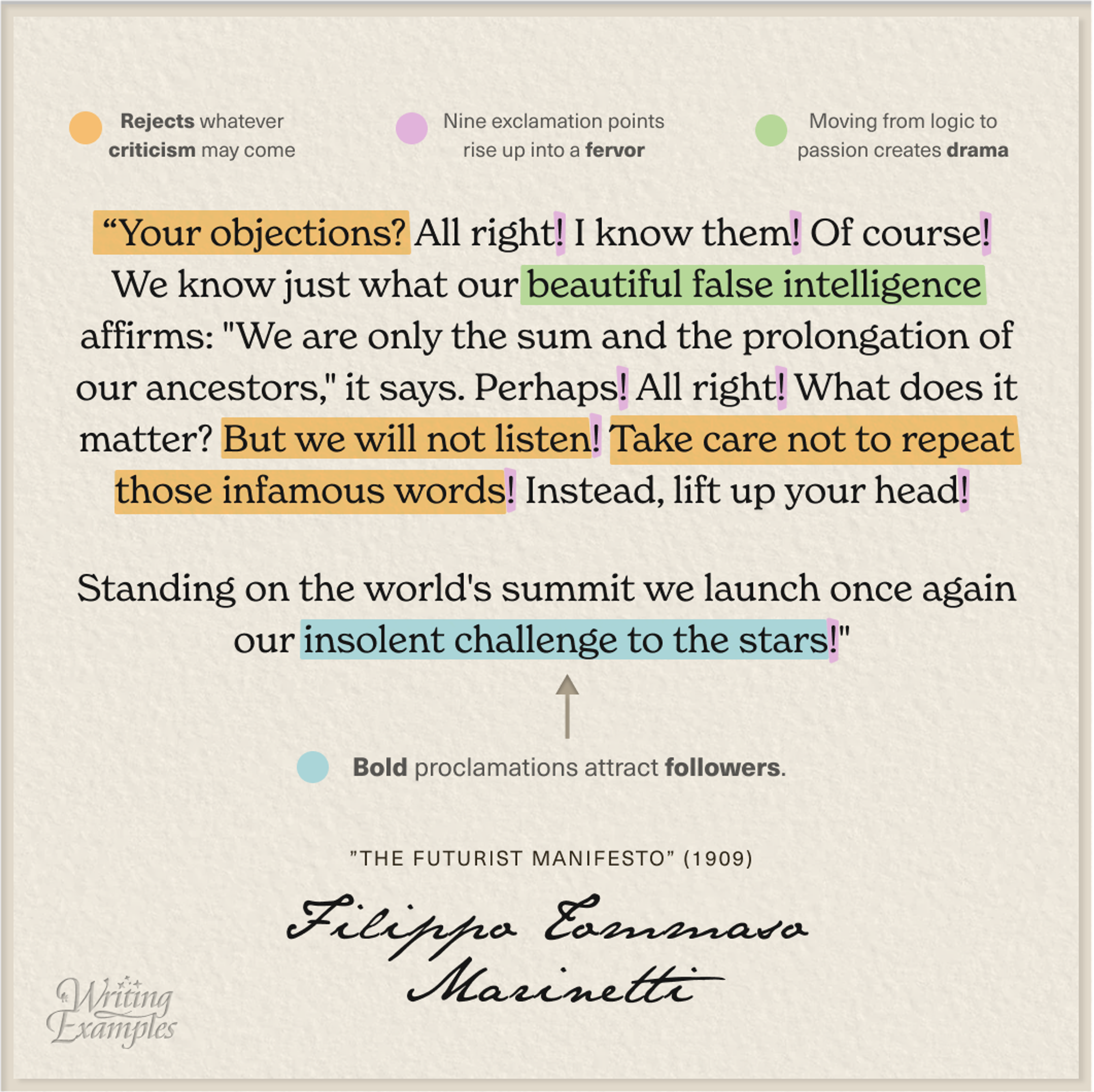HOW TO
End aManifesto
By
David Perell


anifestos are famously controversial, but they’re impactful for a reason. Manifestos don’t just present a compelling theory. They’re written as a call to action too. This is not an analysis of the ideas inside of The Futurist Manifesto, but rather an analysis of why these words inspired masses of people to reject the past and embrace a modern, technocratic future.
Manifestos are defined by their energy. Short sentences. Bold proclamations. Dramatic language. In this one, the rhetorical questions make us feel like we’re being spoken to directly. And when was the last time you saw so many successive sentences end with exclamation points? The writing shouts from the rooftop and screams: “Listen to me and rise up!!!”
Marinetti leans on feeling over fact and emotion over truth. Factual accuracy is a secondary concern for him. He knows there’s going to be pushback, but preemptively rejects whatever rebuttals may come his way, no matter how truthful they may be.
Why? Because manifestos have to challenge the prevailing wisdom. But instead of diffusing the energy with counter-arguments, Marinetti unleashes a torrent of proclamations that encourage his readers to reject the inevitable opposition his manifesto will receive as a point of principle. If that requires braggadocious arrogance, so be it.
Bold proclamations attract followers, and manifestos are full of them.
Instead of getting bogged down by the limits of logic, Marinetti wants you to dream bigger. To lift up your head and challenge the stars — the grandest, furthest-out objects the human eye can see.
Read More
Write like the Greats
New Writing Examples, right in your inbox.
“Beautiful, playful, and high-quality. Kudos.”
Clayton
from Missouri, USA



